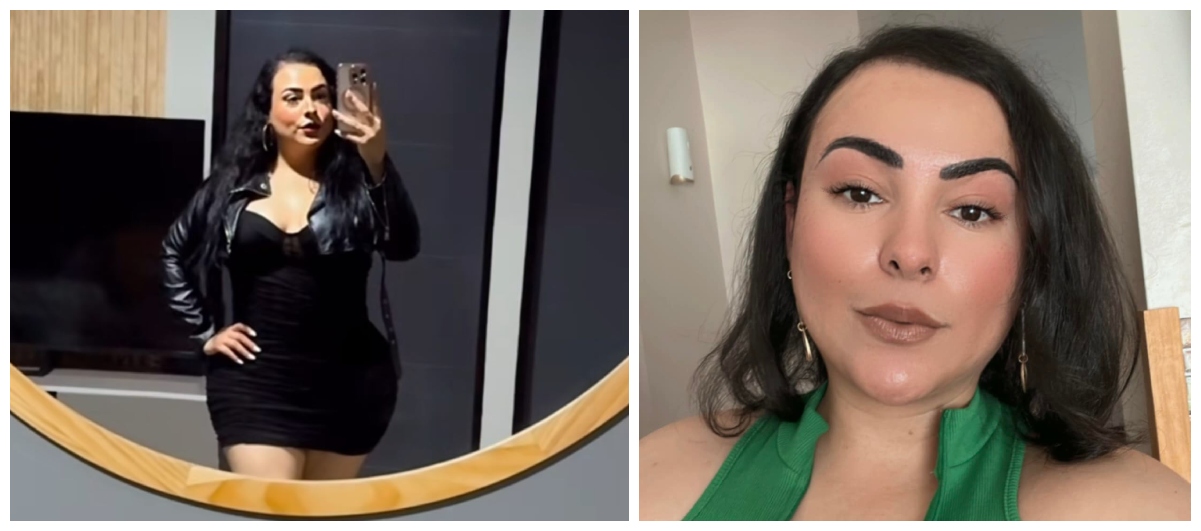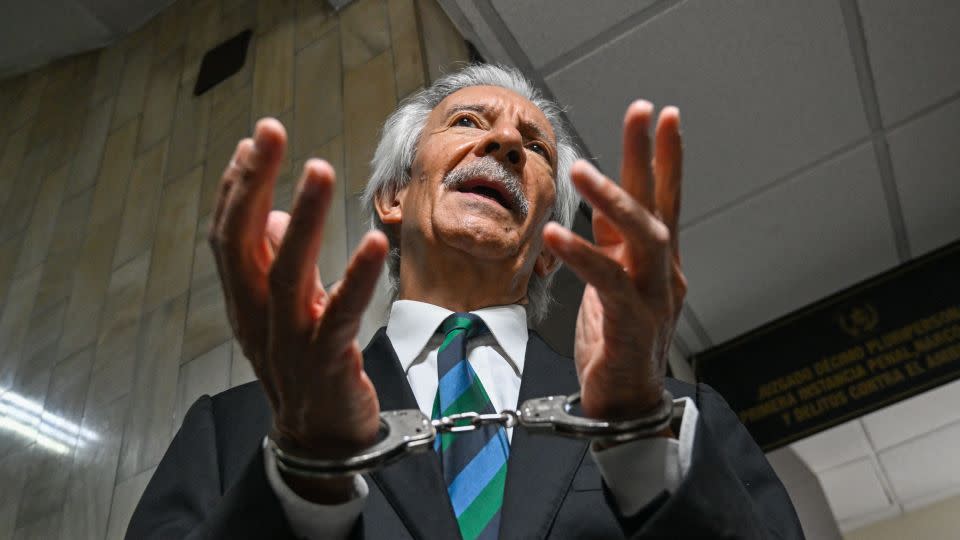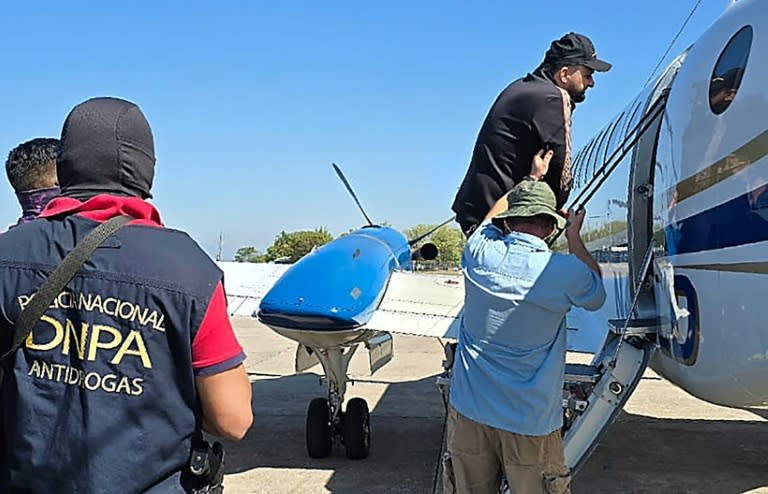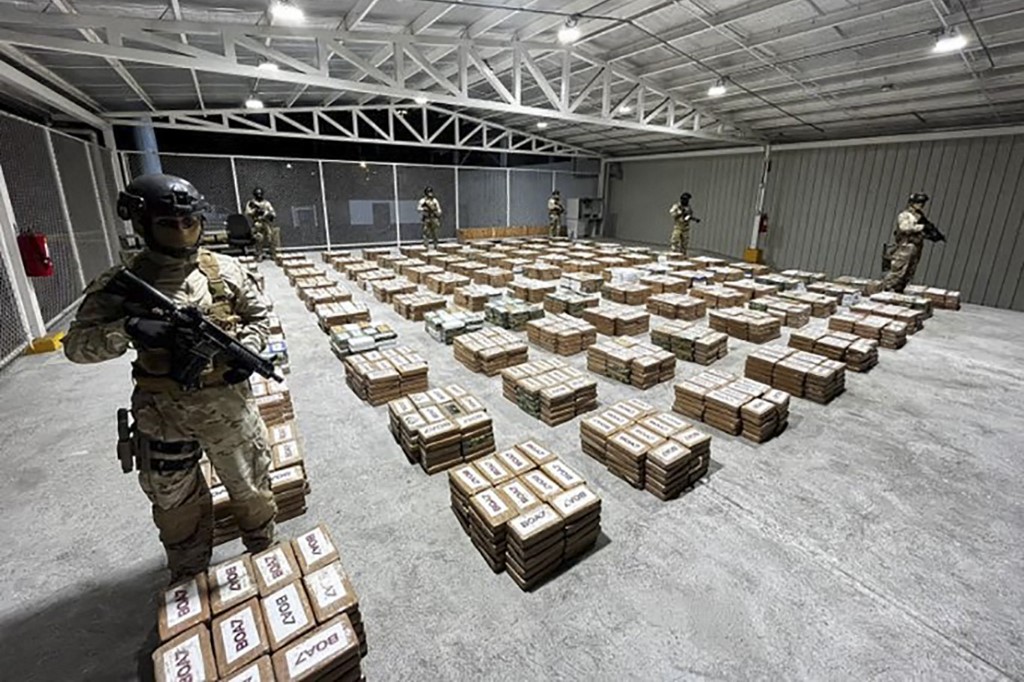Centroamérica
Salvadoran woman decides to return to the country to live in an environment of peace and tranquility

Live a quiet life, full of peace and for your mental and emotional well-being. Those are the main reasons that motivated Cinthia Gracast, creator of content of Salvadoran nationality, to return to the country after several years living in Chicago, United States.
Gracast has published on his social media platforms the step by step of his move to El Salvador, his country of birth and to which he returns after having recently visited him, at which time, he says, he made the decision to return.
The content creator points out that, during her visit to the country, she witnessed the substantial changes that El Salvador has undergone and that have made it the safest country in America. In addition, he remarked how that atmosphere of peace helped to improve his mental and emotional health, which was quite affected during his stay in Chicago.
“I love the lifestyle of El Salvador. As soon as I went, I just fell in love even more. I feel like that’s how you live and here in the United States you live only to work. It’s a routine that’s ruining you. A routine that has had me in depression, in anxiety. It is something that I have fought with alone,” she says in one of her videos, in which she announced her decision to return to the country.
Gracast commented in that publication that he recently visited the country and was able to witness how El Salvador has changed, moving from an environment full of violence to an environment of peace and security, thanks to the transformations driven by the current government of Nayib Bukele.
“When I went to El Salvador this time, I swear that I felt a peace, something changed in me. Being there I felt very good, I felt happy, I didn’t feel any anxiety. I feel that my mental health is priceless and I want to be there (in El Salvador) and I’m going to be there. I know it’s going to be a very good change,” he added in that video.
After this publication, the content creator published several videos showing her moving process. Finally, yesterday he published the video of his first day in El Salvador, showing his followers the preparation of a coffee with Salvadoran tradition, inherited from his grandmother, and highlighting the atmosphere of peace that is currently lived in the country.
El Salvador has undergone a positive change in terms of public safety in the last five years and under the presidential leadership of Nayib Bukele, going from being one of the most violent countries in the world to becoming the safest in America.
During Nayib Bukele’s five-year period, El Salvador has recorded 600 days with zero homicides and has seen the average of violent deaths per 100,000 inhabitants categorically reduced, thanks to strategies such as the Territorial Control Plan or the emergency regime still in force in El Salvador, which has allowed the capture of more than 79,000 gang members and criminals.
Centroamérica
Guatemalan journalist José Rubén Zamora returns to prison after court revokes release

Businessman and journalist José Rubén Zamora was sent back to prison on Monday after the Second Multipersonal Criminal Court complied with an order from the Third Court of Appeals, which suspended his conditional release. The ruling followed a motion filed by the Public Ministry, arguing that Zamora posed a flight risk.
“I must comply with and enforce the order,” Judge Erick García stated during the hearing that revoked Zamora’s substitute measures, which had been in place since October last year.
Following the court’s decision, the founder of El Periódico was transferred back to prison, where he had already been incarcerated from July 2022 to October 2024.
Zamora’s defense team unsuccessfully requested the suspension of the hearing, citing two pending appeals aimed at overturning the Court of Appeals’ decision.
Centroamérica
Honduras extradites José Sosa to U.S. on cocaine trafficking charges

Honduras handed over an alleged drug trafficker to the United States on Tuesday under a bilateral extradition treaty that remains in effect after a diplomatic rift between leftist President Xiomara Castro and Washington was resolved, the Honduran Police reported.
José Sosa, a 48-year-old Honduran national, was transferred from the Támara National Penitentiary in the capital to Palmerola Airport, located about 50 km north of Tegucigalpa, according to an official statement.
“He was handed over to U.S. authorities under strict security measures,” the statement added.
The police explained that the suspected drug trafficker was wanted by a federal court in Florida on cocaine trafficking charges. His extradition was approved on April 30, 2020, but he had to serve a sentence in Honduras for illegal possession of firearms before being transferred to the U.S., the report said.
Central America
Nicaraguan Naval Force seizes cocaine on Pacific Coast, suspects escape

The Nicaraguan Army’s Naval Force reported on Tuesday the seizure of two bundles containing 80 packages of cocaine along the Pacific coast, although none of the four suspects were apprehended.
The illicit substance was seized near the Quizalá beach, in the municipality of San Rafael del Sur, Managua department. According to the military report, the four suspects “fled, leaving the drugs behind” after “detecting the presence of Army troops.”
The two “red bundles (…) contained 80 rectangular packages of cocaine,” the Nicaraguan Army stated.
The operation was conducted by the First Naval Troop Battalion “Commander Richard Lugo Kautz,” part of the Naval Force.
Authorities did not provide details on the individuals connected to the drug haul or the weight of the cocaine seized. They confirmed that the drugs were handed over to the relevant authorities for legal proceedings.
Nicaraguan authorities emphasize that they are implementing a strategy called the ‘Containment Wall,’ aimed at preventing the movement of drugs or drug-related money into populated areas. They maintain “close cooperation” with regional countries as well as the United States, Mexico, and Russia.
Nicaragua is located along a major drug trafficking corridor from South America to North America, where Mexican cartels operate, and the primary consumers are located.
-

 Central America4 days ago
Central America4 days agoNicaraguan Exiles to Mark 7th Anniversary of 2018 Protests with Global Commemorations
-

 International4 days ago
International4 days agoDominican ‘False Hero’ Arrested for Faking Role in Nightclub Collapse That Killed 231
-

 International3 days ago
International3 days agoACLU seeks emergency court order to stop venezuelan deportations under Wartime Law
-

 Central America3 days ago
Central America3 days agoUN complaint filed against Costa Rica over detention of migrant children
-

 International2 days ago
International2 days agoThousands rally nationwide against Trump’s threat to U.S. democracy
-

 Central America1 day ago
Central America1 day agoSenator Van Hollen Meets with Deported MS-13 Member in El Salvador; Trump and Bukele React
-

 International1 day ago
International1 day agoPope Francis Appears for Easter Blessing, Calls for Peace and Religious Freedom
-

 Central America3 hours ago
Central America3 hours agoCardinal Rodríguez to Attend Funeral of Pope Francis: “He Was Very Dear to Me”
-

 International3 hours ago
International3 hours agoDominican Republic Declares Three Days of Mourning for Pope Francis
-

 Central America3 hours ago
Central America3 hours agoNicaragua’s Ortega and Murillo Mourn Pope Francis, Acknowledge ‘Difficult’ Relationship
-

 International3 hours ago
International3 hours agoDHS Secretary Kristi Noem’s Purse Stolen in D.C. Restaurant Heist
-

 International3 hours ago
International3 hours agoPope Francis: The Quiet Architect Behind the U.S.-Cuba Thaw















